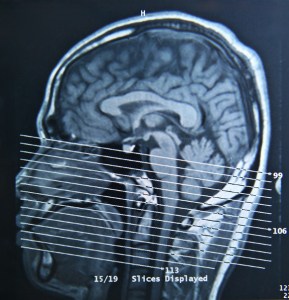 A 2016 study by the Canadian Medical Association Journal analyzed the effects of concussions on the risk of suicide. Concussions are a possible injury for anyone who suffers a traumatic brain injury due to any type of vehicle accident, sports injury, physical attack, or other trauma to the head. The study was initiated in response to the large number of military personnel who suffer head injuries during military battles. The study also looked at the relationship between concussions that occurred on the weekend and those that happened during the workweek.
A 2016 study by the Canadian Medical Association Journal analyzed the effects of concussions on the risk of suicide. Concussions are a possible injury for anyone who suffers a traumatic brain injury due to any type of vehicle accident, sports injury, physical attack, or other trauma to the head. The study was initiated in response to the large number of military personnel who suffer head injuries during military battles. The study also looked at the relationship between concussions that occurred on the weekend and those that happened during the workweek.
The lead author of the study was Dr. Donald Redelmeier, a scientist at the Institute for Clinical Evaluative Sciences. He is also a doctor at Sunnybrook Health Sciences Center in Toronto. The study examined Ontario adults who had been diagnosed with a concussion, for any reason, between the years 1992 and 2012. The study excluded those concussions that required the patient to be admitted to a hospital.
235,110 patients who had concussions were examined. The mean age of those studied was 41 years. Slightly more than half of the subjects were male; 86% of those in the study lived in an urban environment.
The results of the study
The study found that, for the median follow-up period, about 31 out of 100,000 patients committed suicide. That number is three and a half times the normal amount of suicides in the population. People who suffered a concussion on a weekend were an extra 1/3 more likely to commit suicide than those who suffered their concussion during a weekday. As reported by CBS news, it is speculated that the increased weekend risk is because concussion patients generally receive better care when they see regular staff doctors who tend to work during weekdays.
This increased risk was independent of whether the patient had past psychiatric difficulties. On average, the suicide occurred six years after the concussion. Half of the patients had sought help during the week before they took their life.
The study concluded that people who suffer a concussion need long-term care to monitor their increased risk of suicide. Better attention for a long time could save the lives of concussion victims. It is important to note that, although the study showed an association between concussions and increased suicide risk, it did not show a direct cause and effect link between these two factors.
The need for extended monitoring is just one of the many reasons concussion and TBI cases require a lot of medical expenses and why the pain and suffering award needs to be high. The Nashville TBI lawyers at the Rocky McElhaney Law Firm are dedicated to understanding the long-term effects of concussions and traumatic brain injuries. To speak with one of our Gladiators in Suits, please call our Nashville, Hendersonville, and Knoxville offices at 615-246-5549. You can also fill out our contact form to reach us.
